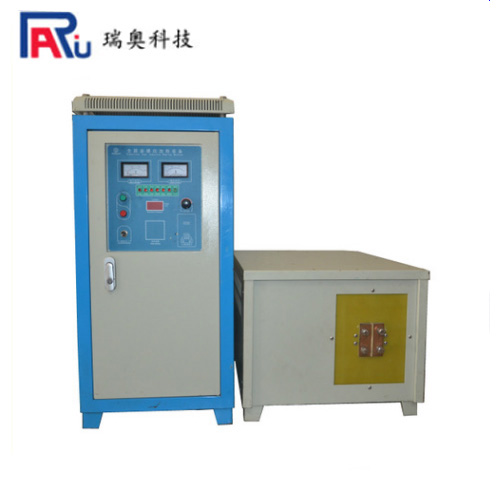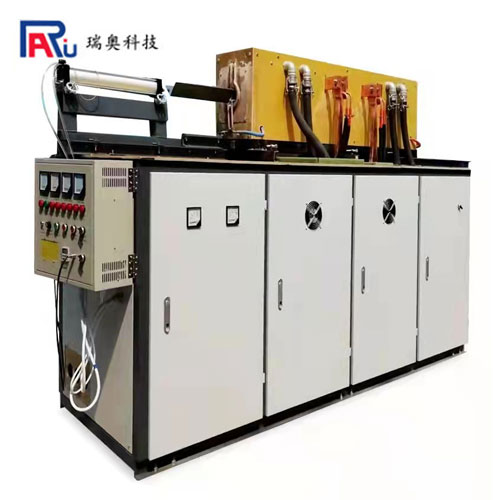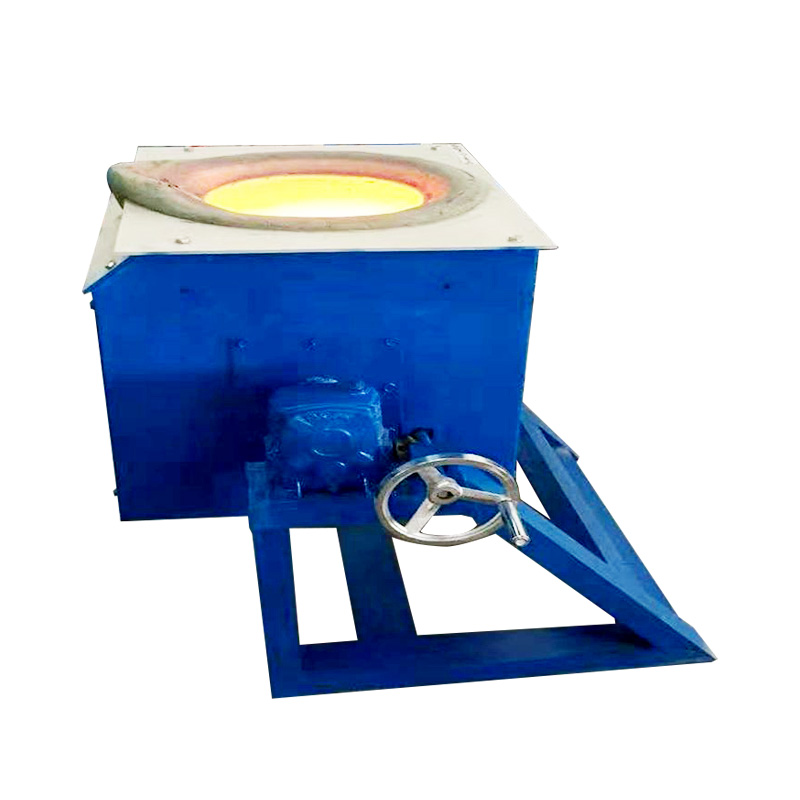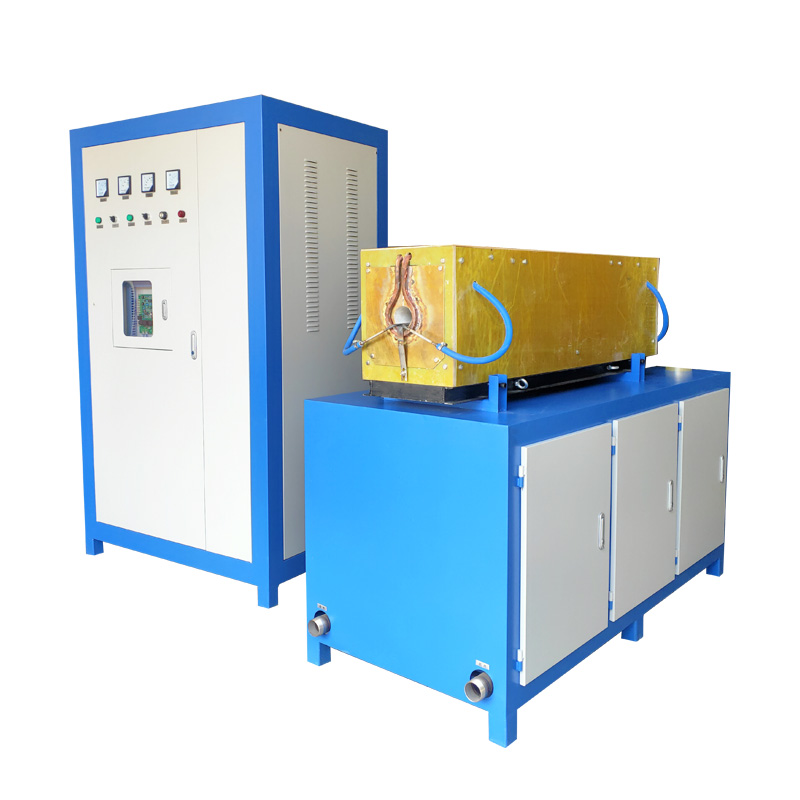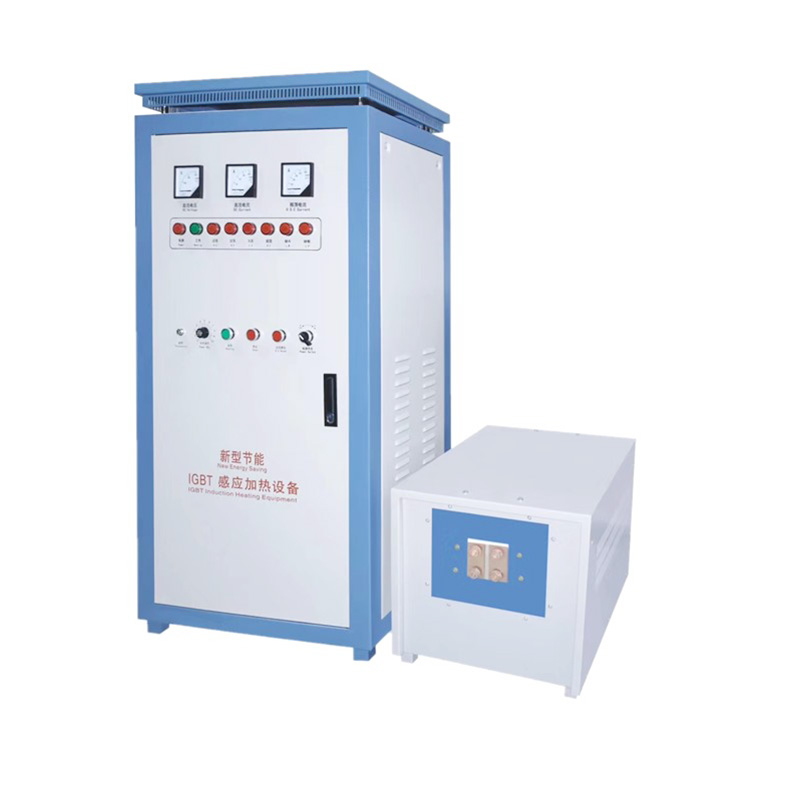Diathermoforming equipment for hand tools such as pliers and wrenches - the main features of high frequency induction heating equipment:
All-solid-state Power device MOSFET and IGBT are used to realize automatic frequency tracking.
High frequency, fast heating speed, and energy saving compared with other heating methods.
Safe and reliable, the operation is simple, and the output terminal of the device is a safe voltage, which will not harm personal safety.
Perfect functions Manual and automatic adjustment, if any parameter of overcurrent, overvoltage, overheating, lack of water, or lack of phase fails to meet the requirements, the machine will automatically protect.
No open fire, no pollution, no noise, meet the requirements of environmental protection and fire protection, and enhance the image of the company.
Induction heating equipment, according to different output frequencies, can be roughly divided into: high frequency induction heating equipment, super audio frequency induction heating equipment, medium frequency induction heating equipment, etc. Different heating processes require different frequencies. If the frequency selection is wrong, it cannot meet the heating requirements, such as slow heating time, low work efficiency, uneven heating, and the temperature does not meet the requirements, which may easily cause damage to the workpiece.
How to choose induction heating equipment
Induction heating equipment can be roughly divided into super audio frequency induction heating equipment, high frequency induction heating equipment and medium frequency induction heating equipment according to different output frequencies. Different heating processes require different frequencies. If the wrong frequency selection cannot meet the heating requirements, such as slow heating time, low work efficiency, uneven heating, and the temperature does not meet the requirements, it is easy to cause damage to the workpiece.
To choose the frequency correctly, we must first understand the heating process requirements of the product. Generally speaking, there are several situations:
1 Heat penetration of workpieces For example, hot upsetting and hot rolling of fasteners, standard parts, auto parts, hardware tools, twist drills, etc., the larger the diameter of the workpiece, the lower the frequency should be.
∮4mm or less suitable for super audio (100-500KHZ)
4-16mm for high frequency (50-100KHZ)
16-40mm for IF (0.5-10KHZ)
Heat treatment, shafts, gears, quenching and annealing of stainless steel products, etc. Taking quenching as an example, the workpiece requires that the shallower the quenching layer, the higher the frequency, and the deeper the quenching layer, the lower the frequency.
The quenching layer is:
0.2-0.8mm for 100-250KHZ UHF
0-1.5mm for 40-50KHZ high frequency, super audio
1.5-2mm for 20-25KHZ super audio
2.0-3.0mm for 8-20KHZ super audio, intermediate frequency
3.0-5.0mm for 4-8KHZ IF
5.0-8.0mm for 2.5-4KHZ IF
 浙公網(wǎng)安備 33038102331513號
浙公網(wǎng)安備 33038102331513號

